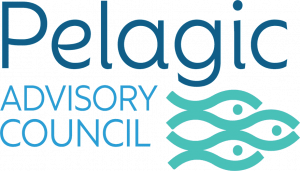| PelAC letter – Follow up on the implementation of the revised control regulation | The PelAC congratulated Mr Broche on his appointment as Head of Unit D4, Fisheries Control and Inspections and requested the organisation of a pelagic-specific workshop. The PelAC also emphasized the importance of including Advisory Counsils in other implementations fora. | 2024 | Letter to COM |
| Joint LDAC-NWWAC-PelAC-SWWAC recommendations on Deep-Sea mining and its impacts on fisheries | The LDAC, NWWAC, PelAC and SWWAC reaffirmed in these recommendations that if there is insufficient evidence to determine the full impact of deep-sea mining (DSM) on the marine environment and unless it can be proven that no marine biodiversity loss nor degradation of marine ecosystems are the result of these activities, a moratorium or total prohibition on exploitation of deep-sea minerals should be implemented. The ACs expressed their strong support for the EU Commission’s reaffirming its position to advocate to prohibit deep-sea mining until robust scientific evidence can demenstrate that it will not negatively impact marine ecosystems of jeopardise the livelihoods of those who depend on the sea, including fisheries. | 2024 | Letter to COM |
| Joint-AC Advice on Stakeholder Engagement in ICES Advice request formulation | The NSAC, LDAC, PelAC, NWWAC, SWWAC and BSAC jointly sent a letter to the Commission to request that the EU as the requester of scientific advice to ICES establishes a mechanism for early signalling of advice requests and a process for engagement in scientific advice request formulation in a structured step-by-step approach, by initially focusing on special advice and potentially moving to recurring advice in the future. Enhanced transparency and information-sharing with Advisory Councils could be the first step, eventually developing into a systematic consultation with the relevant Advisory Councils. | 2024 | Letter to COM Commission response |
| PelAC letter on Fish Welfare in Pelagic Fisheries | The PelAC informed the Commission that it is taking steps to address fish welfare in pelagic fisheries. Members of the PelAC, both from industry and the other interest groups are actively involved in ongoing work in this area. The PelAC requested to be consulted on any process regarding the issue of fish welfare in pelagic fisheries. | 2024 | Letter to COM Response from COM |
| PelAC recommendation on the preparation for the Benchmark on Northeast Atlantic Mackerel – March 2025 | The PelAC submitted in annex the detaild report of the PelAC FG meeting on Northeast Atlantic Mackerel (12 Sept 2024) , which summarized the discussions on preparing for the ICES data call scheduled for the end of 2024. The PelAC emphasized the importance of ensuring high-quality ICES advice on mackerel and the need to further investigate stock assessement. | 2024 | Letter to Com Commission response |
| PelAC benchmark request for Irish Sea and Celtic Sea herring | The PelAC requested the Commission to ask ICES to carry out as a matter of urgency a combined benchmark of the Irish Sea and Celtic Sea stock assessments to address the aforementioned issues and to conduct a retrospective analysis on the impact of the inappropriate assessment of Irish Sea herring and the provision of inflated advice for the past seven years. | 2024 | Letter to COM Commission response |
| PelAC letter: urgent action needed following ICES advice on NEA mackerel stock | The PelAC reiterated to the European Commission the critical importance of immediate action following the publication of the recent ICES advice regarding the Northeast Atlantic mackerel stock, which recommended a 22% reduction in catches. | 2024 | Letter to COM Commission response |
| PelAC recommendation on Fishing Opportunities 2025 | The Pelagic AC provides recommendations on TACs in 2025 for stocks under its remit. | 2024 | Letter to COM |
| PelAC letter on Coordination and Harmonisation of Horse Mackerel Stocks Assessements | The PelAC expressed their concerns and requested a full coordination of work on all horse mackerel stocks following the recent benmark assessment. The PelAC calls for the European Commission and ICES to coordinate efforts to harmonise the assessment and management of all horse mackerel stocks. Addressing the highlighted data deficiencies, improving survey efforts, and integrating ecosystem considerations are crucial steps toward sustainable fisheries management. | 2024 | Letter to Com and ICES ICES response Commission response |
| PelAC letter on concerns regarding the Coastal States sharing status for the NEA mackerel stock | The PelAC expressed their serious concern regarding the persistent risk of parties setting escessive unilateral quotas. The PelAC urges all Coastal States to continue negotiations on a comprehensive sharing arrangement that reflects genuine, sustainable track records and interests. | 2024 | Letter to COM |
